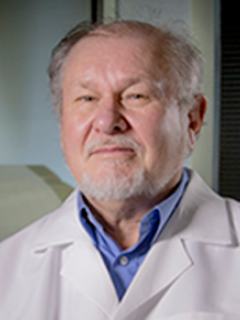Description
Human reproduction depends on the fertilization of an egg capable of establishing and maintaining pregnancy. ARTs as currently practiced for the treatment of infertility remain woefully inefficient as evidenced by the fact that as little as 5% of all oocytes collected every contribute to a live birth. Both the shortcomings inherent to ART practices (the more is better mentality) and the lifestyle factors influencing reproductive competence will be considered. Emphasis is placed on the problem of ovarian aging and just how emergent technologies will or will not be able to sustain oocyte quality for purposes of family building.
Learning Objectives
1. Explain why so few of the eggs collected by ARTs are capable of making babies
2. The good, the bad, and the ugly about current ARTs will be summarized
3. Review the current models for ovarian aging and consider proposals for extending reproductive lifespan.

David Albertini held The Hall Professorship of Molecular Medicine at the University of Kansas from 2004-2011 and is an internationally recognized scientist and educator in the field of reproductive biology and medicine. He has served as Director of the Center for Reproductive Sciences at the University of Kansas Medical Center and Tufts University School of Medicine, and Chair of the Department of Anatomy and Cell Biology at Tufts University School of Medicine. He is currently the Editor-in-Chief of the Journal of Assisted Reproduction and Genetics, an official journal of the American Society for Reproductive Medicine. He has over 150 peer-reviewed original primary research publications, over 50 chapters and reviews, and one book. He serves on the editorial board of major journals. His major research contributions have been in the cell and developmental biology of mammalian reproduction, particularly in oogenesis, and the translation of basic science on oocyte and embryo quality to human assisted reproductive technologies. He is an active reproductive scientist who has trained over 40 students and postdocs and serves on grant review committees for the National Institutes of Health, the National Science Foundation, American Cancer Society, National Foundation March of Dimes, The Lalor Foundation, and funding agencies from Israel, Ireland, The Netherlands, Turkey, Belgium, Portugal and the U.K.
